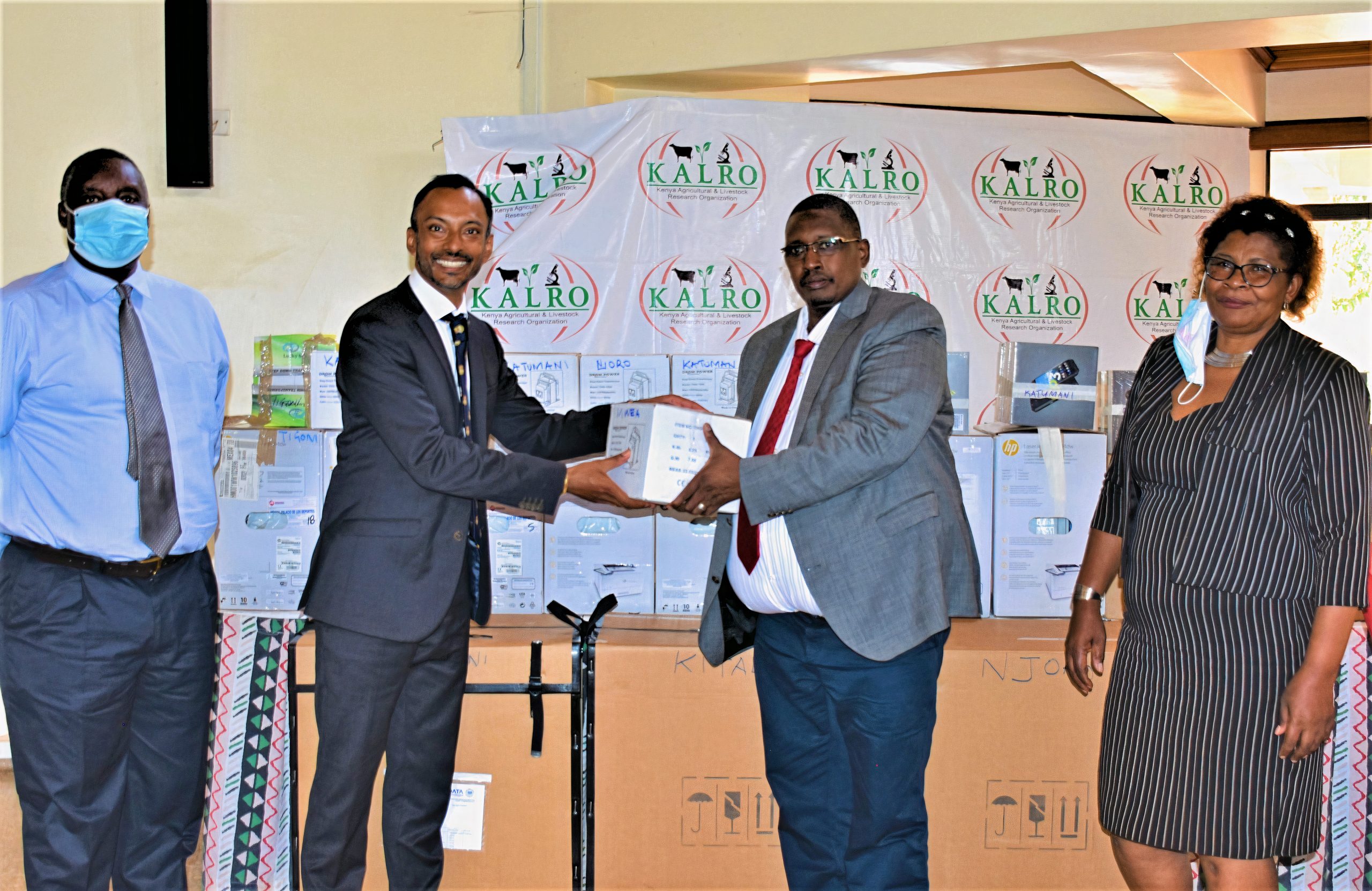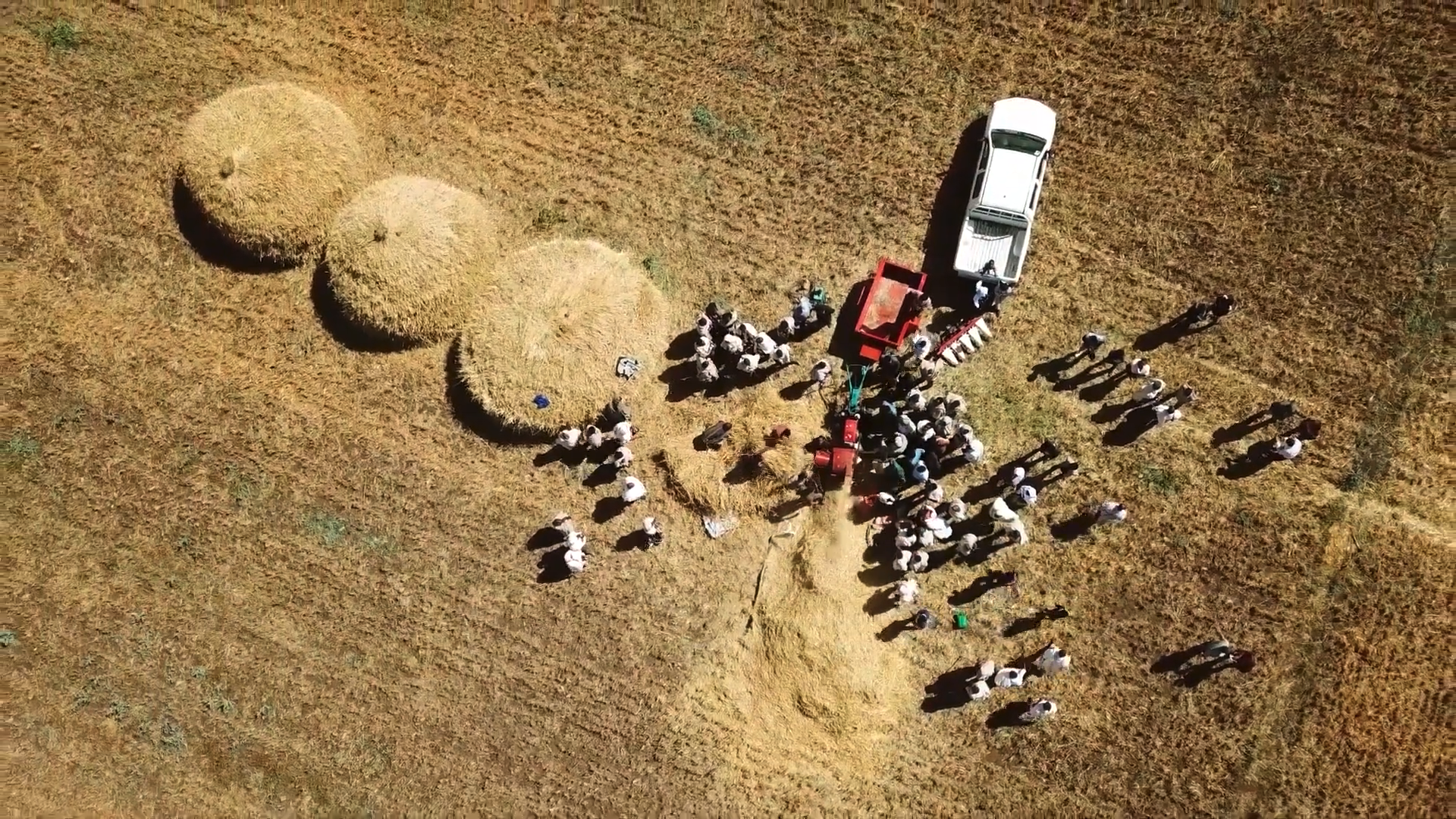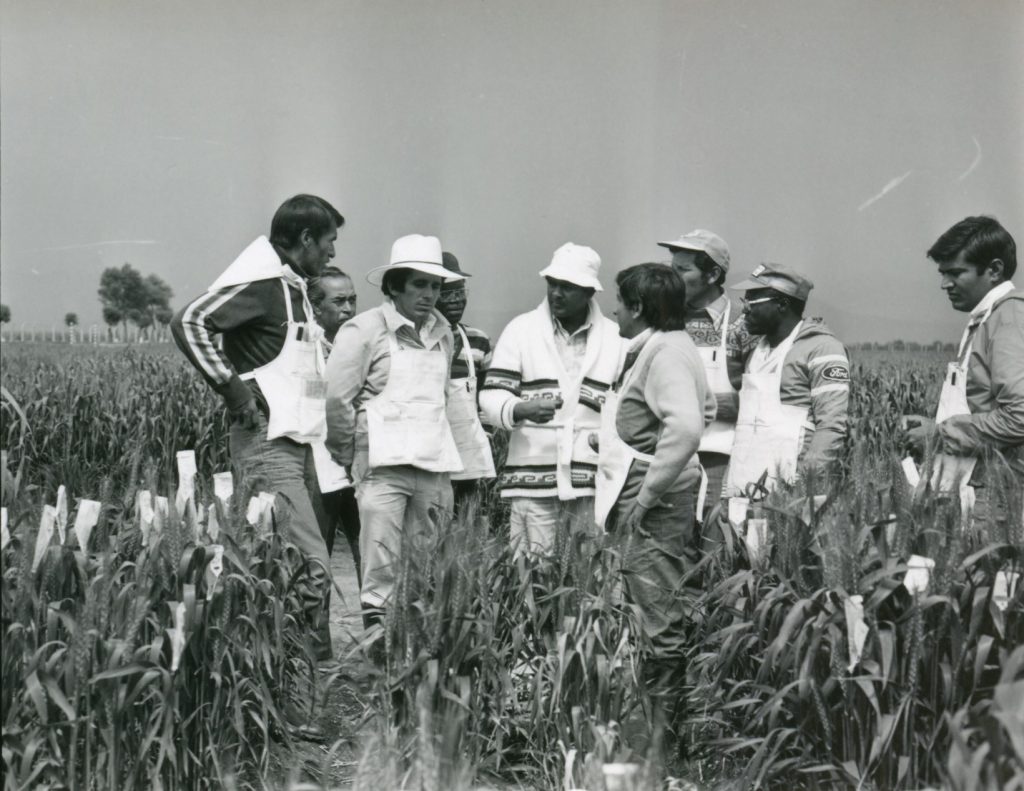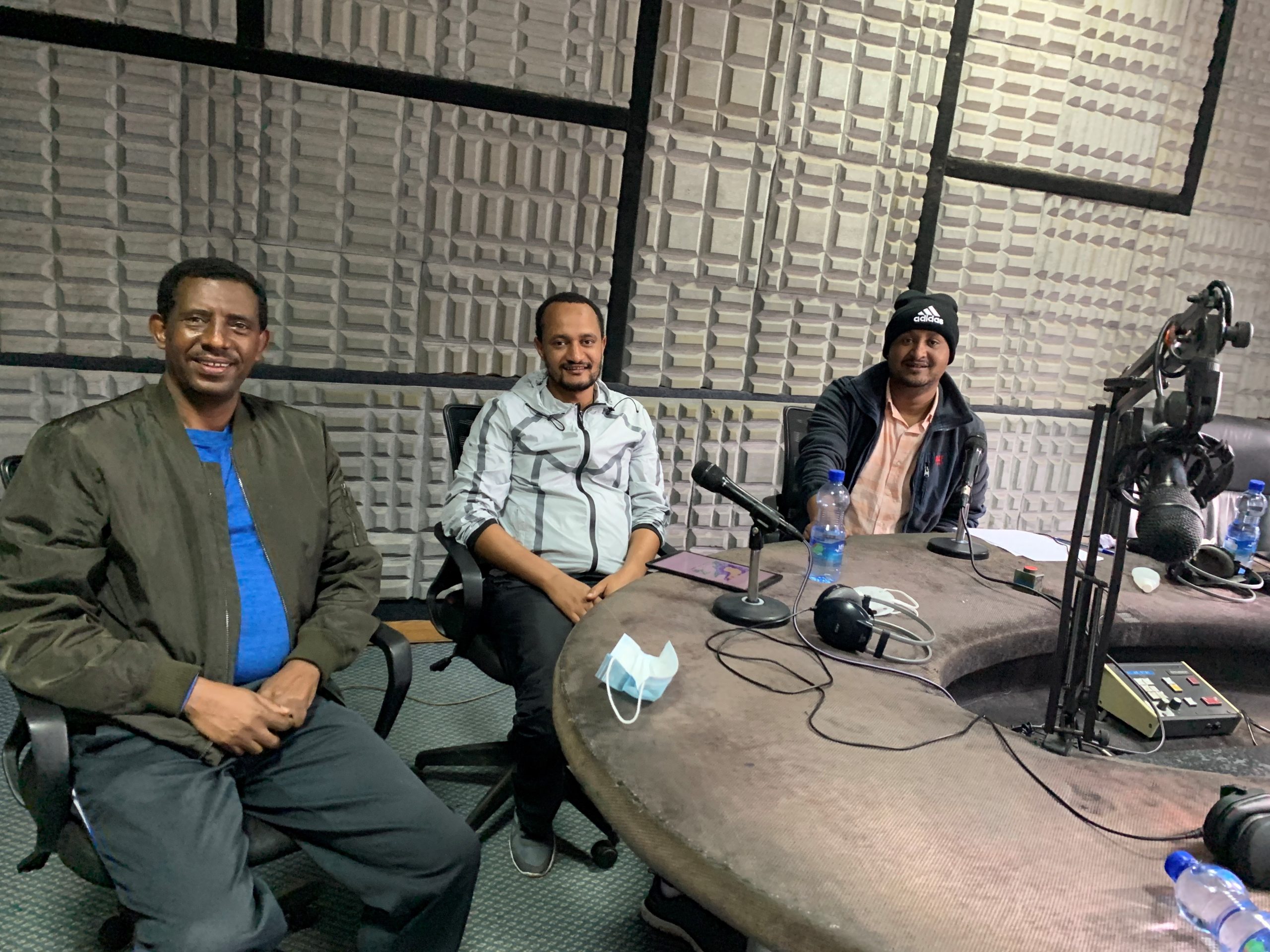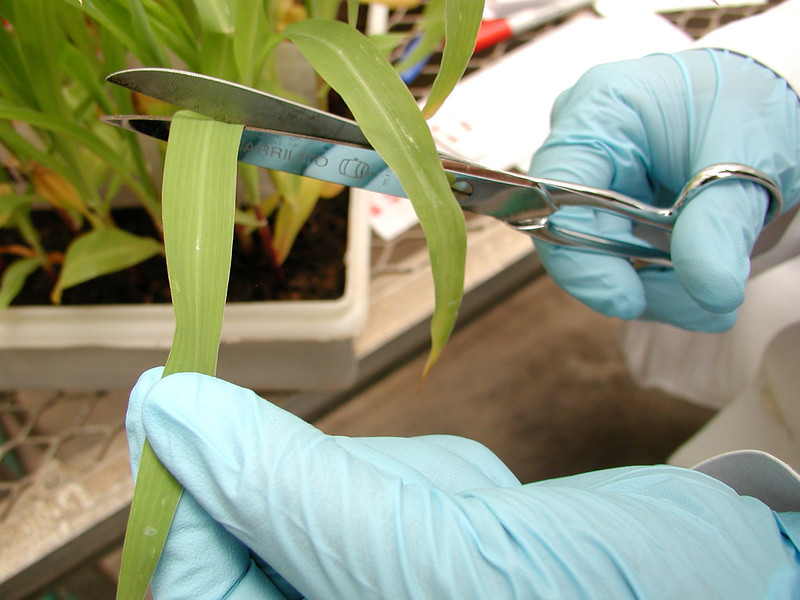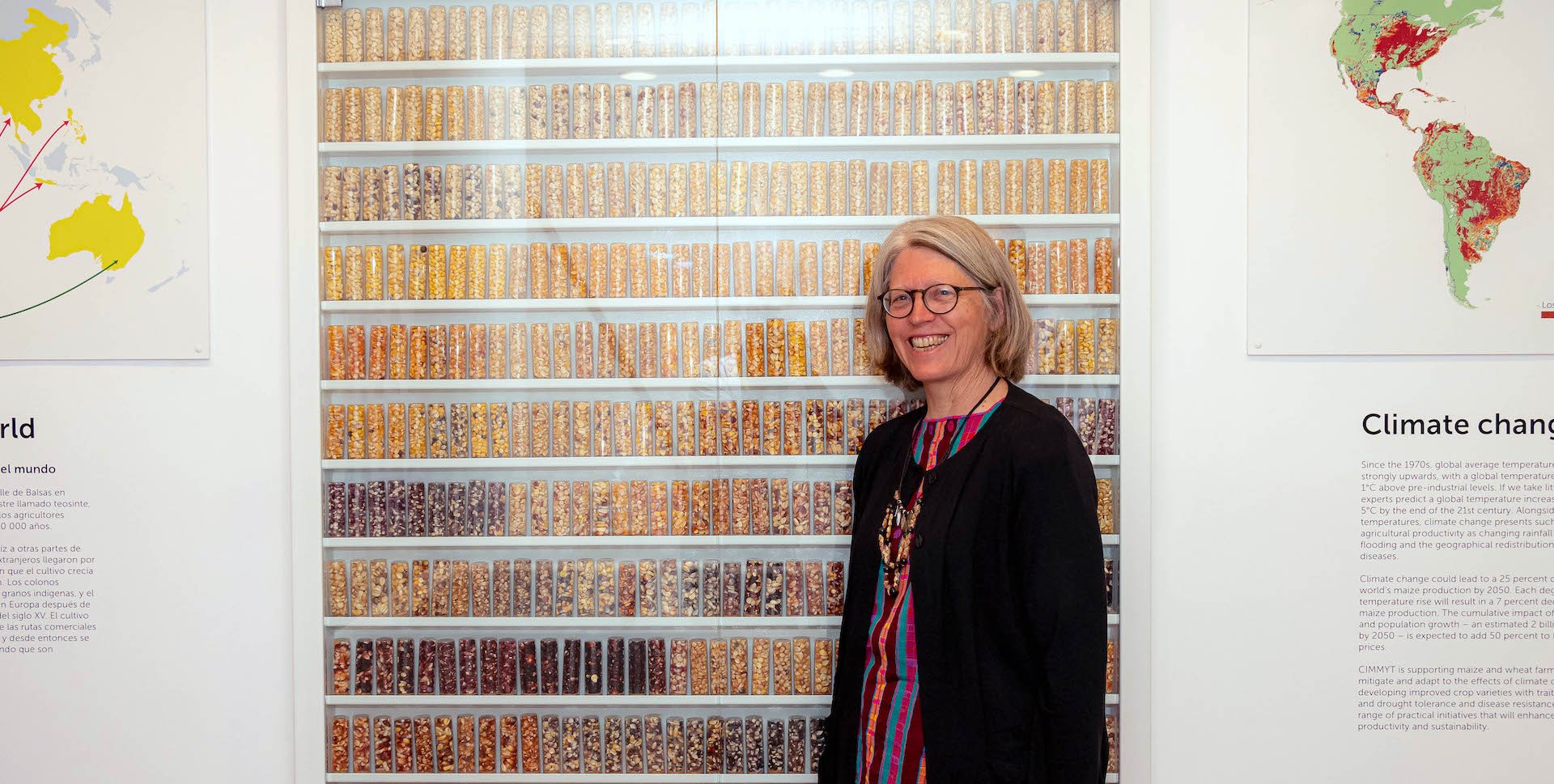Capacity development
CIMMYT training courses play a critical role in helping international researchers meet national food security and resource conservation goals. By sharing knowledge to build communities of agricultural knowledge in less developed countries, CIMMYT empowers researchers to aid farmers. In turn, these farmers help ensure sustainable food security. In contrast to formal academic training in plant breeding and agronomy, CIMMYT training activities are hands-on and highly specialized. Trainees from Africa, Asia and Latin America benefit from the data assembled and handled in a global research program. Alumni of CIMMYT courses often become a significant force for agricultural change in their countries.
México y EU establecen estrategia conjunta a favor de la seguridad alimentaria
 Capacity development
Capacity development
Source: El Sol de México (16 May 2021)
Mexico’s Secretariat of Agriculture and Rural Development (SADER) and its counterpart in the United States reached an agreement to promote knowledge sharing and scientific collaboration on agriculture-related issues.
The Green Revolution was built on manipulating genes to breed higher-yielding, disease resistant crops. Here’s an ode to one of its pioneers, Sanjaya Rajaram
 Capacity development
Capacity development
Source: Genetic Literacy Project (5 May 2021)
This tribute to the life and work of Sanjaya Rajaram also flags CIMMYT’s contribution to improving livelihoods and fostering more productive sustainable maize and wheat farming.
Digitization equipment set to accelerate Kenya’s breeding programs
 Capacity development
Capacity development
New equipment will speed up and enhance the accuracy of national breeding processes including seed preparation, data collection and inventory management.
México se consolida como el tercer productor agropecuario de América Latina
 Capacity development
Capacity development
Source: El Sol de México (29 Apr 2021)
During the presentation of Mexico’s 2021 Agri-Food Expectations, Bram Govaerts, Director General of CIMMYT, flagged a number of initiatives aimed at supporting the country’s food self-sufficiency.
Many birds with one stone
 Capacity development
Capacity development
Two-wheel tractors have replaced outdated farming tools, helping Ethiopian farmers reduce drudgery, improve productivity and increase their profits.
Far-reaching impacts
 Capacity development
Capacity development
Alumni of CIMMYT’s historic wheat training program reflect on a powerful learning experience.
Grupo Bimbo impulsa agricultura regenerativa de maíz y trigo
 Capacity development
Capacity development
Source: Milenio (29 Mar 2021)
Through the Sustainable Wheat and Sustainable Maize projects, Bimbo strives to ensure the sustainability of Mexico’s agricultural sector, benefitting over 940 smallholder farmers through yield enhancement and cost reduction strategies.
Capacitating farmers and development agents through radio
 Capacity development
Capacity development
CIMMYT partnered with Ethiopia’s Ministry of Agriculture, Ethiopian Institute of Agricultural Research (EIAR), Climate Change, Agriculture and Food Security (CCAFS)-EA, and Fana Broadcasting Corporate to deliver seasonal and operational agroclimate and COVID-19 advisories for farmers to support farm decisions.
The transformative value of maize
 Capacity development
Capacity development
In India’s state of Odisha, maize farming is lifting up the socioeconomic status of women.
Scientist boosted global wheat yield with disease-resistant varieties
 Capacity development
Capacity development
Source: The Sydney Morning Herald (3 Mar 2021)
Sanjaya Rajaram, a world-renowned wheat breeder and scientist recognized with the World Food Prize, died on February 17 from COVID-19 in Ciudad Obregon, Mexico.
Breeders take quantum leap
 Capacity development
Capacity development
Molecular breeding experts learn about state-of-the-art data analysis and visualization tools at Wheat Initiative workshops.
Costich retires, but her odyssey continues
 Capacity development
Capacity development
The head of the Maize Germplasm Bank, who retired in September, modernized the bank’s data curation and promoted outreach to maize landrace farming communities in the Americas.
$21m USAID project to boost agriculture mechanisation
 Capacity development
Capacity development
Source: The Daily Star (11 Feb 2021)
USAID has started the implementation of a $21.4 million project led by CIMMYT and partners to support the mechanization of agriculture in Bangladesh.
CIMMYT scientist Ravi Singh receives prestigious award from the Government of India
 Capacity development
Capacity development
The Pravasi Bharatiya Samman Award is the highest honor conferred by the Government of India to non-resident Indians.


